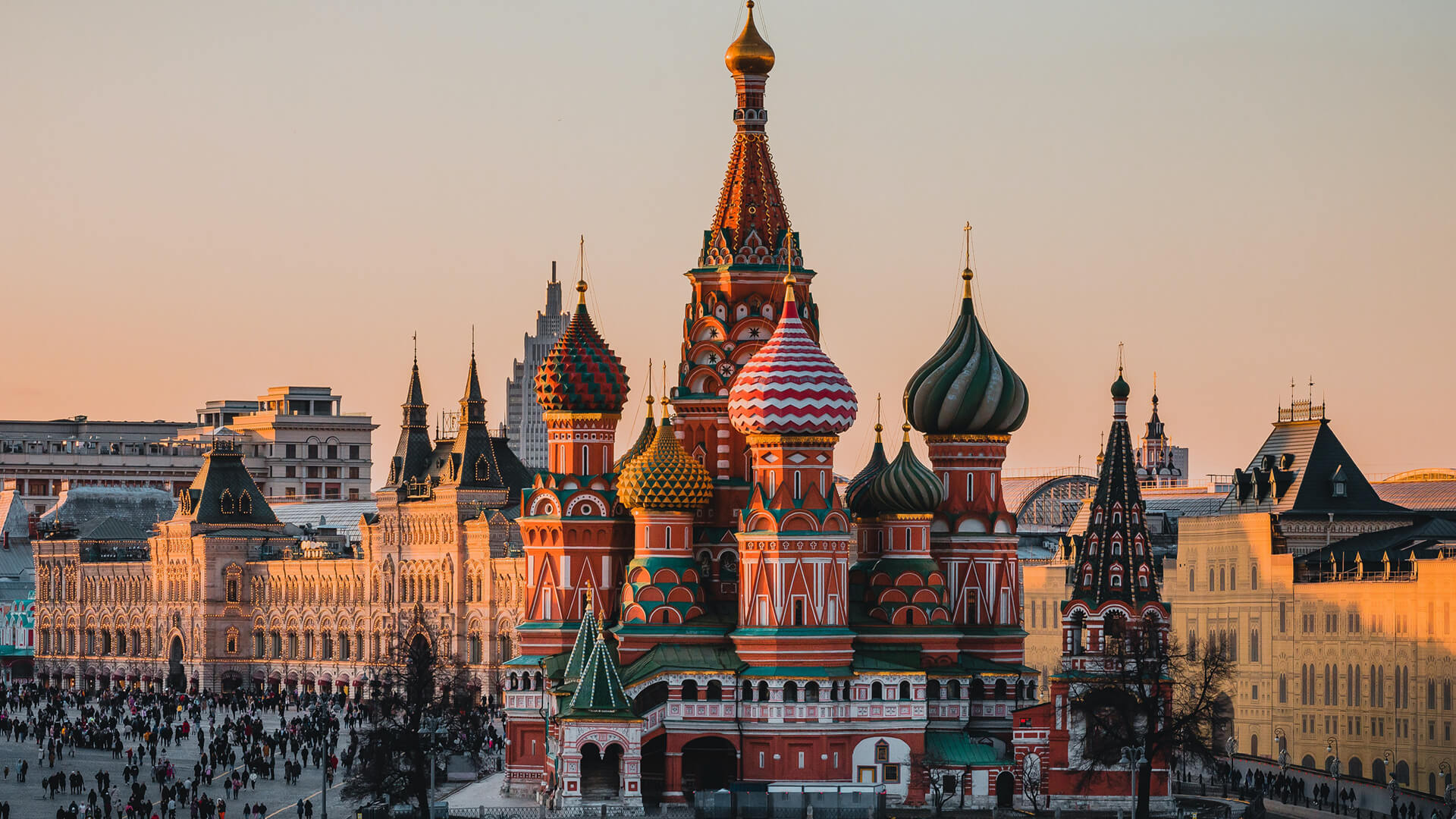The Soviets once boasted the most intricate and prolific human intelligence network in the world, but things have taken a turn since the end of the Cold War. So why can’t Putin’s Russia keep pace with its predecessors?
If someone were tasked with designing the worst geographical region known to man, it would likely resemble the Soviet space. In a place like that, you must be able to conquer, convert, and control anyone in between you and the natural geographic barriers you need. So human intelligence wasn’t a nice-to-have; it was the only way to survive.
Once the Cold War ended, the Russians were left with the shell of a system; still operational but only a shadow of what it once was. Most with this specialized training moved into the private sector or more powerful government positions under Putin.
Now I’m never going to say that Russian Intelligence sucks, but it’s taken some blows that will require a long recovery. I’m mainly concerned about the misinformation-pushing-bots that litter the internet.
Prefer to read the transcript of the video? Click here
Here at Zeihan On Geopolitics we select a single charity to sponsor. We have two criteria:
First, we look across the world and use our skill sets to identify where the needs are most acute. Second, we look for an institution with preexisting networks for both materials gathering and aid distribution. That way we know every cent of our donation is not simply going directly to where help is needed most, but our donations serve as a force multiplier for a system already in existence. Then we give what we can.
Today, our chosen charity is a group called Medshare, which provides emergency medical services to communities in need, with a very heavy emphasis on locations facing acute crises. Medshare operates right in the thick of it. Until future notice, every cent we earn from every book we sell in every format through every retailer is going to Medshare’s Ukraine fund.
And then there’s you.
Our newsletters and videologues are not only free, they will always be free. We also will never share your contact information with anyone. All we ask is that if you find one of our releases in any way useful, that you make a donation to Medshare. Over one third of Ukraine’s pre-war population has either been forced from their homes, kidnapped and shipped to Russia, or is trying to survive in occupied lands. This is our way to help who we can. Please, join us.
CLICK HERE TO SUPPORT MEDSHARE’S UKRAINE FUND
CLICK HERE TO SUPPORT MEDSHARE’S EFFORTS GLOBALLY
TRANSCIPT
Everybody. Peter Zine here coming to you from Colorado. Yes, this is later in the day that we got a foot of snow. It’s crazy. Anyway, I wanted to close out the series on Russian intelligence with why the Russians seem to be significantly weaker than we would have expected them to be, because, after all, this was one of the countries that arguably had the best human intelligence collection system in the world.
I think it’s worth first exploring why I say that the Russian geography is not like the American. So the United States has great coast, great waterways, great land. It’s easy to develop. It’s easy to expand. And so when we want to do human intelligence, you have to take somebody out of that environment and then put them in another one.
And since the United States is a very large country, even though we are multicultural, it’s not like we have a lot of experience in this is going to sound really horrible. Infiltrating and conquering other peoples. I mean. Yes, yes, yes. You can make the case for the Native Americans, you know, a century ago or more. But this isn’t something that’s kind of built into a society where as the Russian system is very, very different.
Moscow McAvoy originally was a relatively small chunk of land with not great capital generation or agricultural opportunities, and it had no natural barriers like the United States has with its border with Mexico or Canada, much less the rest of the world. And so they had to go out and conquer everyone that they border. And all that did was give them territory that they had to occupy and no borders that were decent.
So they went and conquered everyone around that group, too. And they kept expanding, expanding and expanding until they reached a series of geographic barriers like the Caucasus Mountains or the Baltic Sea that either halted their expansion or even better, provided a physical barrier for anyone else coming in and anyone who has been following me on Ukraine. You know, this is kind of my core reason why I think the Russians will never back down and why this war was always inevitable.
Anyway, this leaves the Russians with dozens of ethnicities that they have conquered and are literally using as cannon fodder. And since pretty much no one on the planet has grown up saying, Oh, I want to be cannon fodder later, you have to find a way to induce their cooperation. You can’t make them part of the leadership because they’re conquered people and you don’t want them going their own way.
So you basically shoot through the entire system with intelligence operatives. So the Russians, from the beginning, hundreds of years ago, have become experts at planting their people in other populations that may be hostile to Russian interests and collecting information and recruiting dissidents and basically turning the population against one another. And in doing that, they built up a skill set that dealt that served them very well in the Soviet period.
And the Soviets basically dusted off the Russian strategy and applied it to the world writ large, not just to the Soviet bloc countries or their occupied territories or folks within the Soviet Union itself. And that meant that by the time we got to 1989, the Soviet system had the richest human intelligence gathering network in human history. But then the Soviet system collapsed and just as everything else got weaker.
Same thing here. If you don’t pay your spies, they probably weren’t going to spy as well. There was also a problem with leadership, especially after the year 2000. There was also a big problem with the numbers that they had. So a lot of intelligence operatives after the Cold War ended went into business for themselves and got into drug running and worked for cartel cells and were for people smuggling or worked with the Taliban.
They basically forswear king country or czar in country and went into business and used their skill set for criminal enterprises. And they continued to be a problem today. Second, more importantly is that Putin drew a lot of his support from people who were part of the HUMINT network, specifically on the training and the leadership side, and brought them into his coalition to run the government after he became president in 2000.
Well, most of these people, like, you know, this is a wonderful opportunity to get rich. And so they got out of the business of manning the intel networks and got into the business of government. And these are the silver arcs, if you’re familiar with that term. The siloviki are the strong men, the military intelligence folks who run the system.
The oligarchs are the people who run business in the silver arcs of the people who have a foot in both worlds. Probably the most famous Eric is a guy by the name of Igor Sechin, who runs Rosneft, which is Russia’s national oil monopoly. Anyway, so the Russians have lost most of their operatives abroad because they stopped paying them in the nineties and they’ve lost most of their traders at home because they went into the business of government with Putin.
And that has left a bit of a shell of a system. Now they’re still good because that system to train these people still exist to a degree, but it had to become a lot more focused and they became very sensitive. The Russians became very sensitive to losing their operatives. They try to use them in places where they could have cover, that it was as dense as possible.
And as a rule, no matter what country you’re in, the most reliable cover for an operative is to say they’re a diplomat because that gives them an excuse to be in the country with a limited visa overwatch. They have diplomatic immunity. So if they get caught doing something and get sent home, you just send them to another country.
Well, that had worked for the Russians for a while until the Ukraine were started in. The Europeans decided to belly up to the bar and actually start looking after some of their own security interests. And so far in the war, well over 400, probably close to 500 now intelligent operatives who were registered as diplomats have been ejected. And the Europeans, rather than just sending them home and calling the day, have shared the identities of each and every one of them with every other country in the world.
So the Russians can never to deploy those operatives ever again in any sort of clandestine role with official government cover. And that means that the Russians have to reinvent a lot of their intelligence apparatus, give you an idea of the scale that the United States had to recreate its intelligence apparatus after 911 because we had the information. But we can process it fast enough.
20 years on, we’re still figuring out how to do that. This is not something that’s going to be shaped out by the time that this war is over. This is something that is going to be dogging the Russians for at least a decade. And that leaves me with one final point. There is another class of assets, deep cover assets, sometimes called the legal, sometimes called plants, where the people are assigned to go to another country, establish a false identity and live that false identity until such time as they’re called into action.
This is really the stuff of spy novels, but it does exist. And the Russians historically have been pretty good at it. What we have seen in the last year is at least a dozen instances of these plants, these illegals, these deep covert agents being unmasked, because as the Russians have realized, they can’t train at the same rate that they used to and they lost their entire diplomatic corps access to intelligence.
They’re having to rely on their deep plants to do basic intelligence gathering. And that is not a skill that these people are. Well suited to. For one, you know, these are years, if not decades of investment in time. And they’re being asked to do basic intelligence gathering and HUMINT collection. Well, that’s like using a maserati to deliver newspapers.
I mean, yes, it’ll work, but it doesn’t take a lot of imagination to imagine something going wrong. And that has now gone wrong with a number of these agents. So I’m never going to say that Russian intelligence sucks, but why has it taken a series of structural body blows that are going to be very, very difficult and time consuming to recover from?
And in the meantime, anyone who’s looking to resist Russian influence, it’s gotten pretty simple. You just have to worry about the bot farm. Right now. Russian misinformation is still coming screaming into the system, but it’s no longer. What’s the word I’m looking for. It’s no longer part of a multi vectored approach. It’s really the only leg the Russians have to stand on.
And at some point I think it’s pretty safe to say that one of the major governments of the world was going to do something about the bot form, and then the Russians are going to have to come up with everything else from scratch. All right. That’s it for me to you all. Take care.








